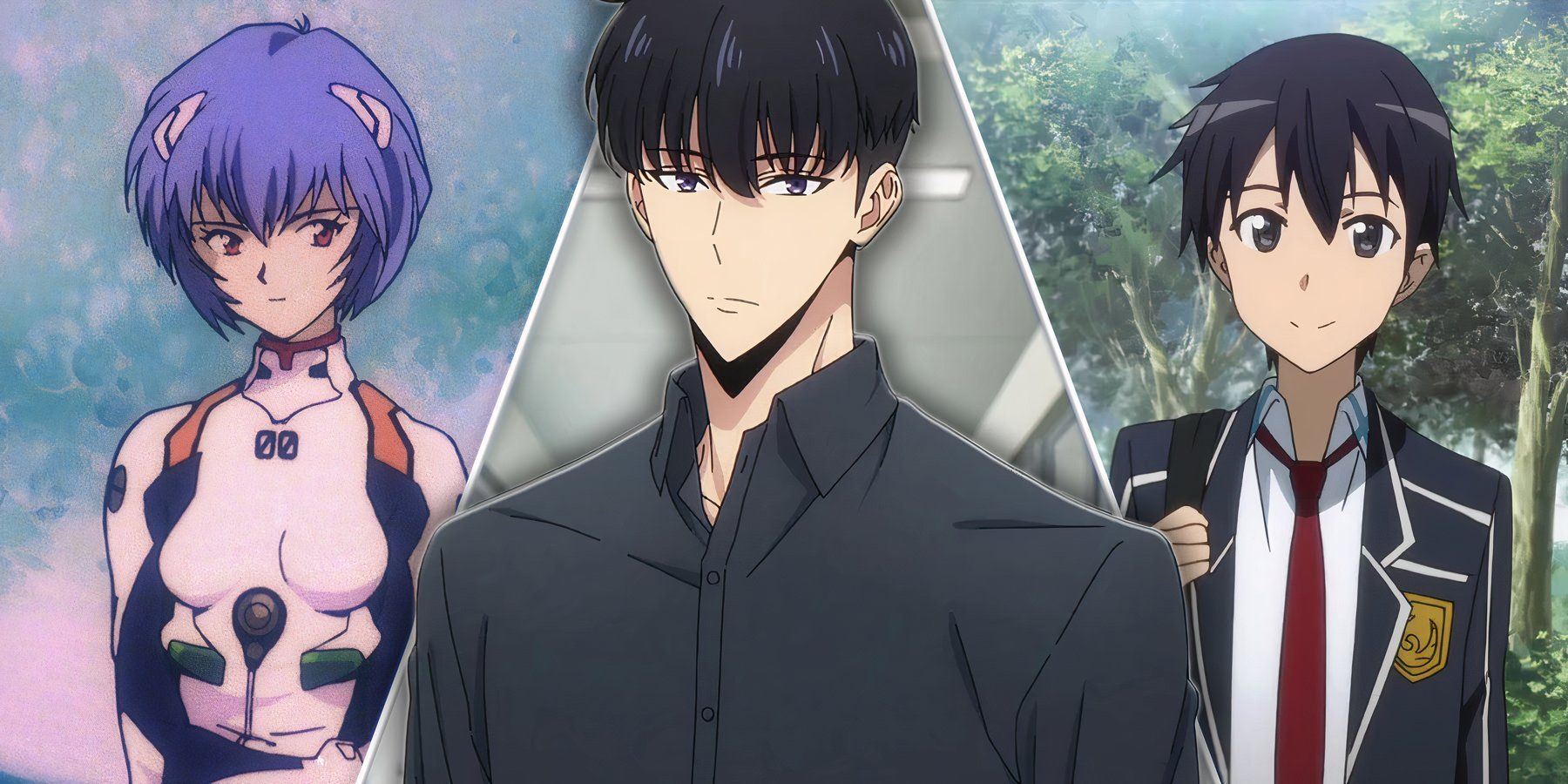
Anime boasts many beloved classics, but, like all forms of entertainment, it also has its share of shows that people strongly disagree about. It’s natural that no single series appeals to everyone, and even seemingly harmless anime can have both devoted fans and passionate critics.
It’s rare for shows to completely split audiences into two strongly opposed sides, and those that do are often the most debated. Anime, in particular, frequently attracts controversy. Sometimes, a series is criticized simply because it’s popular or because some viewers don’t understand why others enjoy it. Other times, the controversy stems from genuinely problematic content, which fans either defend or strongly dislike. Certain anime series have become particularly well-known for being intensely divisive.
Flowers of Evil’s Controversial Art Style Choice Wasn’t Well-Received
Flowers of Evil is a well-respected manga known for tackling difficult subjects, specifically a damaging relationship between two middle school students struggling with personal issues. Surprisingly, the anime adaptation didn’t spark debate about its mature content. Instead, the biggest point of contention among fans was the unique animation style – the entire series was created using rotoscoping, a technique where animators trace over live-action footage.
The anime series Flowers of Evil was the first to rely entirely on rotoscoping, a technique that gives its visuals a strange, almost unsettling quality. While some viewers found this style unattractive, many others appreciated how well it matched the show’s deliberately disturbing and realistically bleak story.
Neon Genesis Evangelion Features Plenty of Elements Fans Still Can’t Agree On
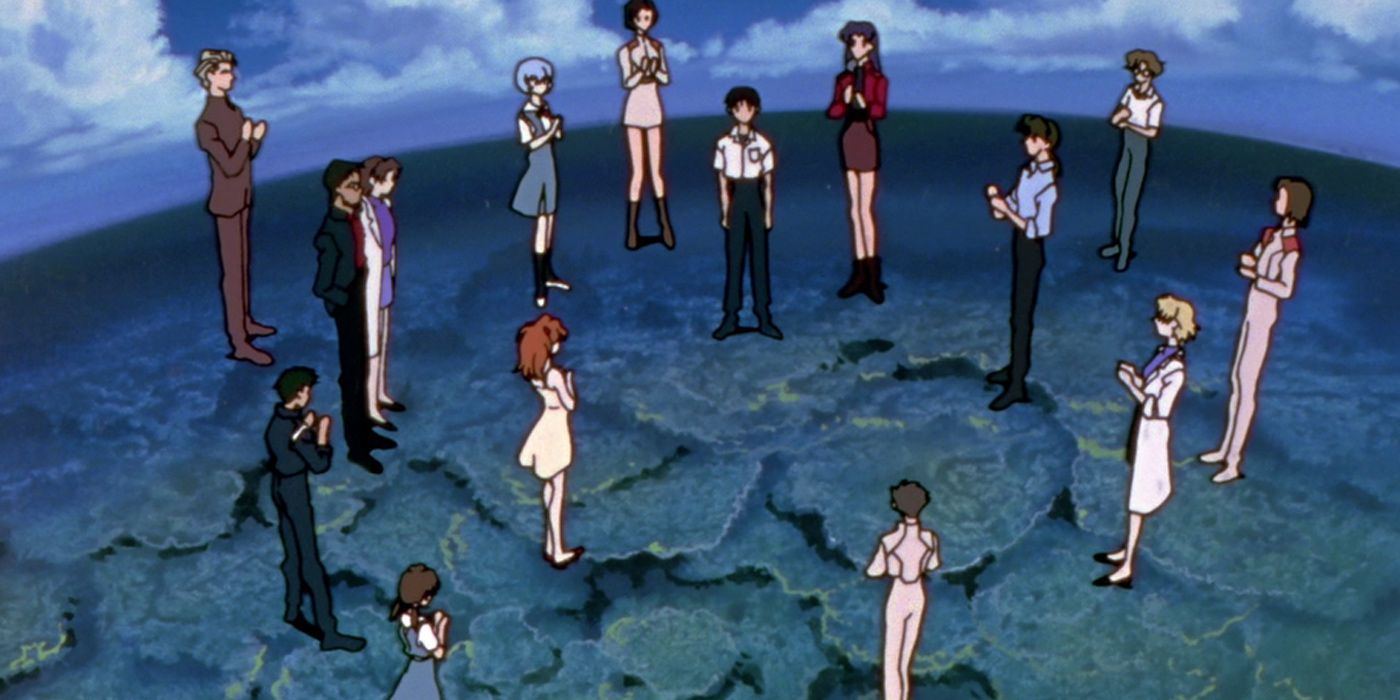
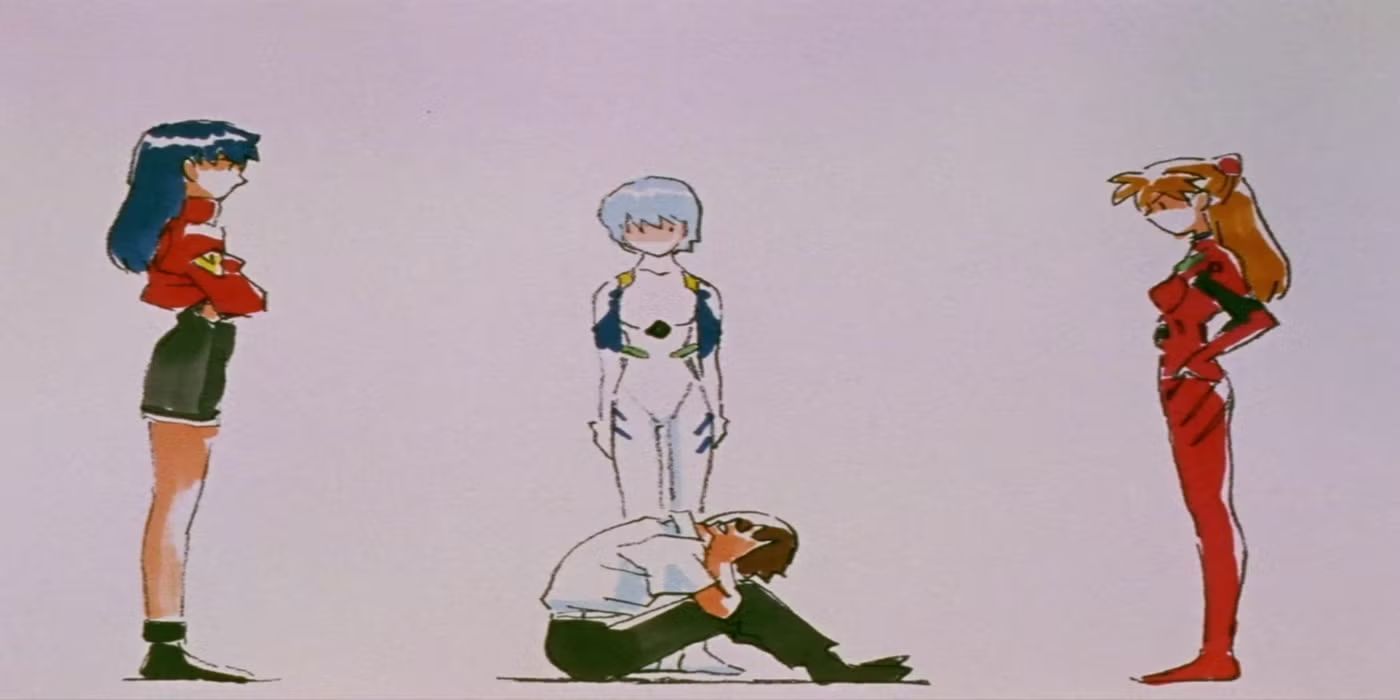
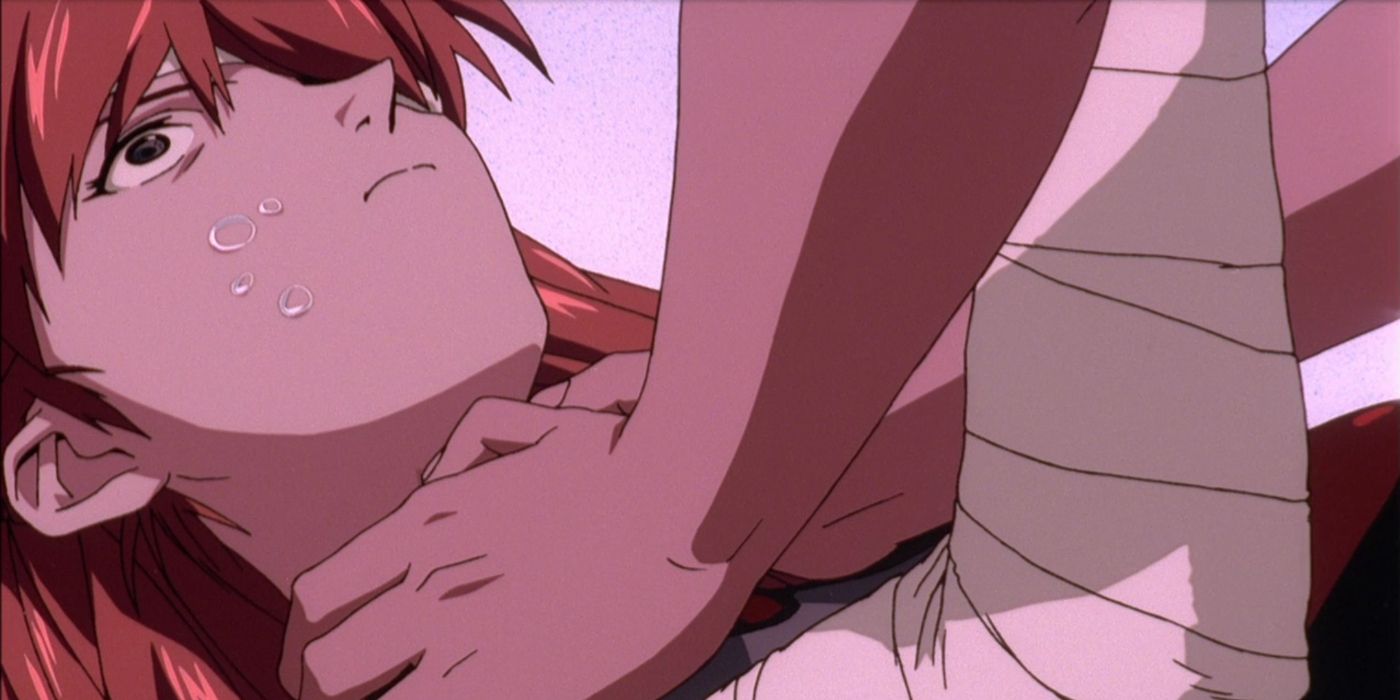
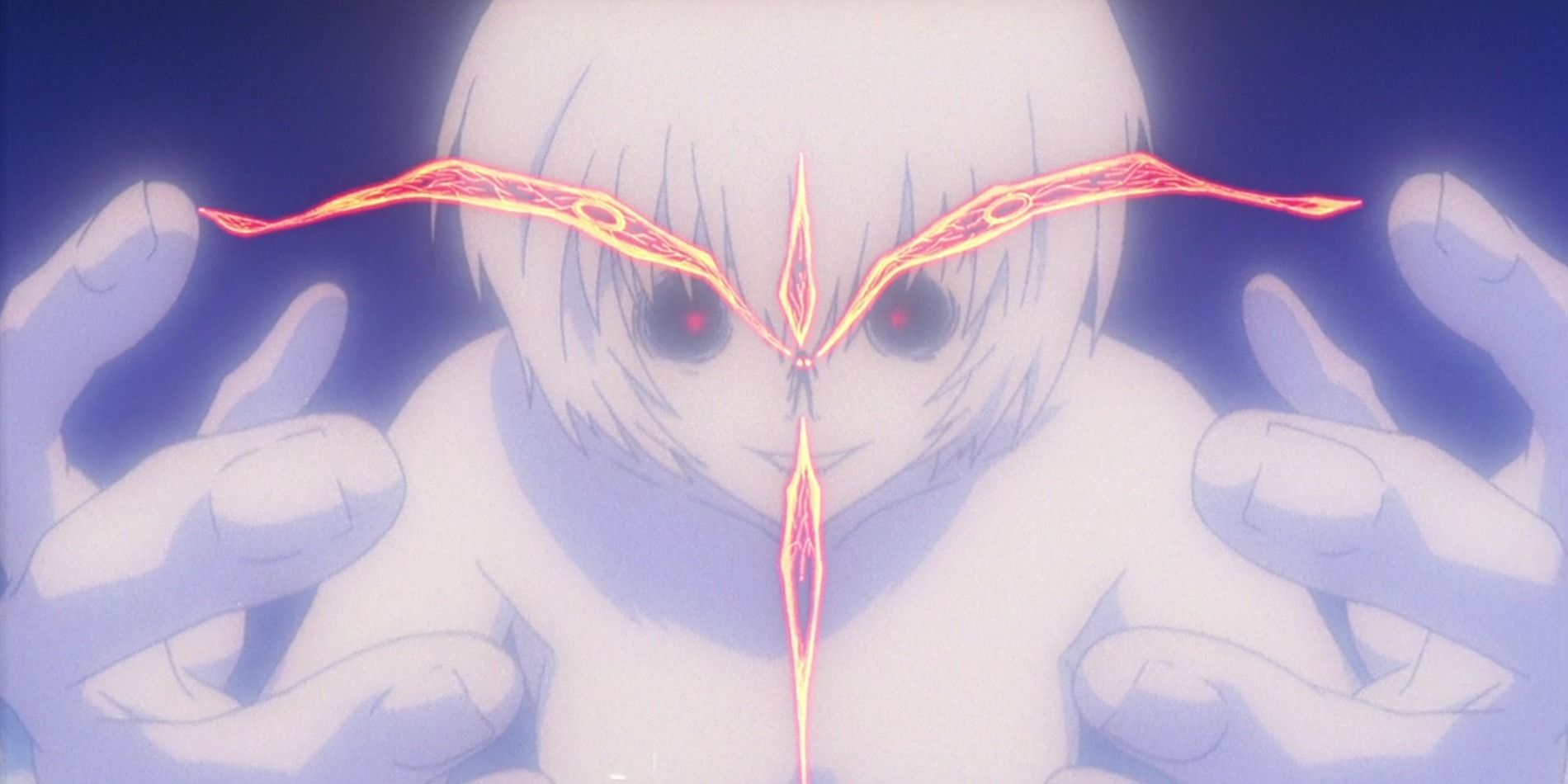
Today, Neon Genesis Evangelion is almost universally considered a landmark anime, and even viewers who don’t enjoy it recognize how important it is. However, it’s also one of the most debated anime series, and it’s definitely not going to appeal to everyone.
The original Evangelion anime is particularly known for its confusing and shocking finale, which upset many viewers when it first aired and remains difficult to understand even today. Other criticisms of the show include its depiction of young female characters, its use of confusing symbolism, and the similarly divisive endings of both The End of Evangelion movie and the Rebuild of Evangelion film series, which even split longtime fans.
Sword Art Online Used to Be the Poster Child of ‘Love It or Hate It’ Anime
Isekai anime, where characters are transported to another world, is popular but remains somewhat separate from mainstream anime. While it’s a well-loved genre now, it wasn’t always this way. In the early 2010s, Sword Art Online was a massive hit – and while not strictly an isekai itself, it’s often credited with making both isekai and anime about massively multiplayer online role-playing games (MMORPGs) incredibly popular. Everyone seemed to have a strong opinion about it.
Many people disliked Sword Art Online simply because it was popular, and it became trendy to criticize. While some valid concerns existed – particularly regarding its handling of sensitive issues like sexual assault and the way it portrayed female characters – the show isn’t as controversial now. Compared to some of the more extreme shows in the isekai genre today, Sword Art Online seems relatively tame, and many have forgotten just how divisive it once was.
Mushoku Tensei: Jobless Reincarnation Is Hated for the Same Reasons It’s Loved
While many viewers were already tired of typical isekai anime when Mushoku Tensei: Jobless Reincarnation was released, it quickly became one of the most debated series in the genre. It both relies on familiar isekai tropes and does things differently, leading to a lot of discussion among fans.
The biggest criticisms of the series revolve around its main character, Rudeus, who is a flawed and often unlikeable person—even after being reborn as a child in a fantasy world. While some viewers appreciate the show’s willingness to portray such a complex character, others strongly dislike Rudeus and criticize the series for seemingly excusing his inappropriate behavior. Despite the controversy, Mushoku Tensei also offers strong points, such as a well-developed world and character growth that feels more realistic and nuanced than in many other fantasy shows.
A Lot of People Feel Frustrated About Solo Leveling’s Popularity
When it comes to recent anime, Solo Leveling is arguably the most controversial hit. It quickly became incredibly popular after its 2024 debut, praised for its exciting action and broad appeal. However, some viewers feel its success isn’t justified, arguing that it lacks depth and has overshadowed more deserving and well-written shows.
Despite its huge popularity, many viewers feel that Solo Leveling’s characters aren’t very interesting, the plot is easy to guess, and it focuses too much on how powerful the main character is. Even though it’s a fairly straightforward anime that emphasizes impressive visuals over a complex story or deeper themes, Solo Leveling has a large and dedicated fanbase, particularly among those new to anime.
Hetalia: Axis Powers Is Either a Fond Memory or a Nightmare Fans Want to Forget
Shows that use humor to poke fun at history are likely to upset some viewers, particularly when they deal with delicate topics like Hetalia: Axis Powers does. As a comedy where countries are characters based heavily on cultural stereotypes, Hetalia wasn’t trying to make a point about politics. However, this approach unintentionally reinforced harmful stereotypes and caused controversy.
I remember back in the early 2010s, Hetalia had a really enthusiastic fanbase. Most fans were great, but sometimes interactions around the show weren’t always considerate. It’s good to see that many Hetalia fans today understand why the series caused some controversy, and can still enjoy it for what it is.
Elfen Lied Is a Classic of Edgy, Controversial Anime
Anime has often featured violent content, but few series became as well-known for it as Elfen Lied. This early 2000s anime is remembered for being particularly brutal and disturbing. It pushed boundaries with its graphic depictions of violence, including scenes involving gore, animal cruelty, and sexual assault.
Many people remember Elfen Lied as a show that tried too hard to be shocking and appealed mainly to teenagers. However, its supporters point to a deeper, more thoughtful story, and appreciate that it’s both engaging and emotionally powerful – though it’s definitely not for everyone, and doesn’t shy away from disturbing content.
Feeling Disgusted Is a Common Experience Watching Yosuga no Sora
Anime often explores sensitive subjects, but Yosuga no Sora is particularly known for tackling extremely controversial themes. As a harem anime – a genre that already attracts criticism – it goes further than most with its explicit content. Most notably, the series features a central romantic relationship between twin siblings, Haruka and Sora, which has drawn significant attention and debate.
Honestly, it’s pretty obvious why Yosuga no Sora caused such a stir, but I have to say, a lot of us genuinely love it! It seems like fans fall into two main camps. Some really see it as a powerful, albeit uncomfortable, drama – a show that wants to challenge you. And then there’s the other side – people like me, who’ll admit it’s a bit of a guilty pleasure! We totally get why others dislike it, but we enjoy it anyway.
School Days Is Either a Subversive Masterpiece or the Worst Anime Ever Made
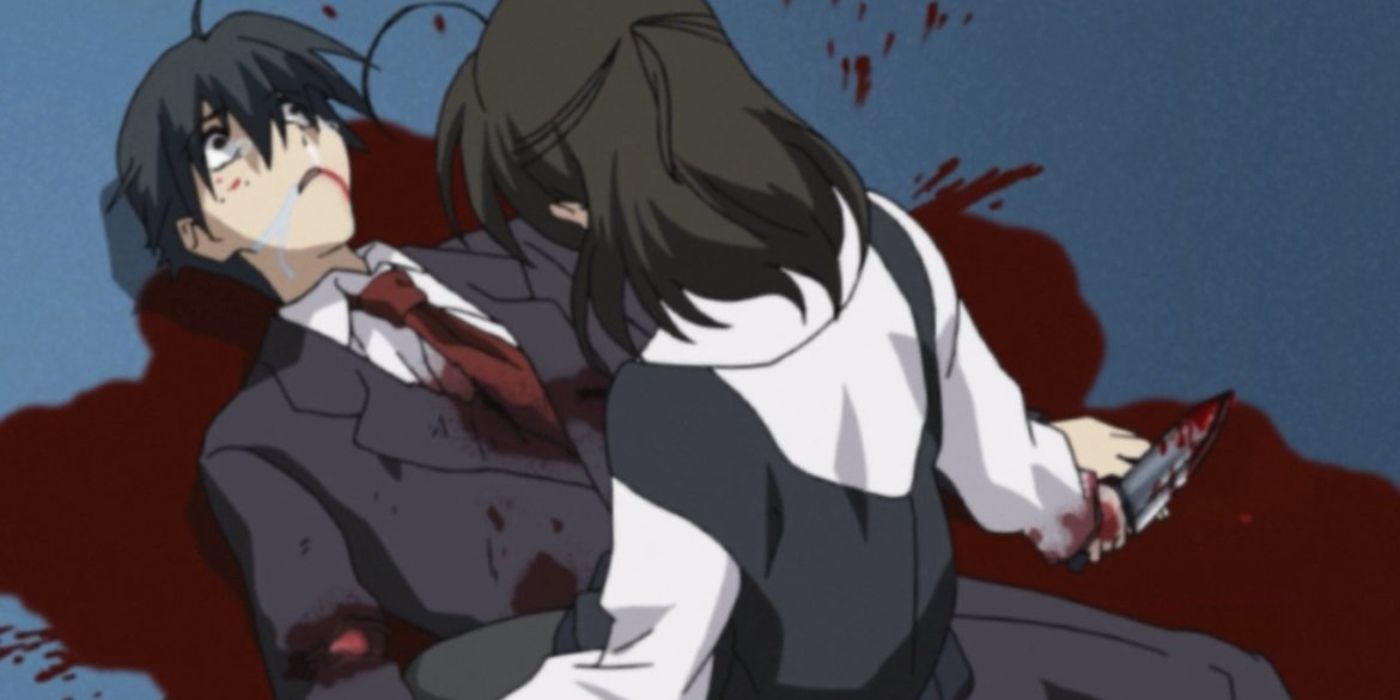
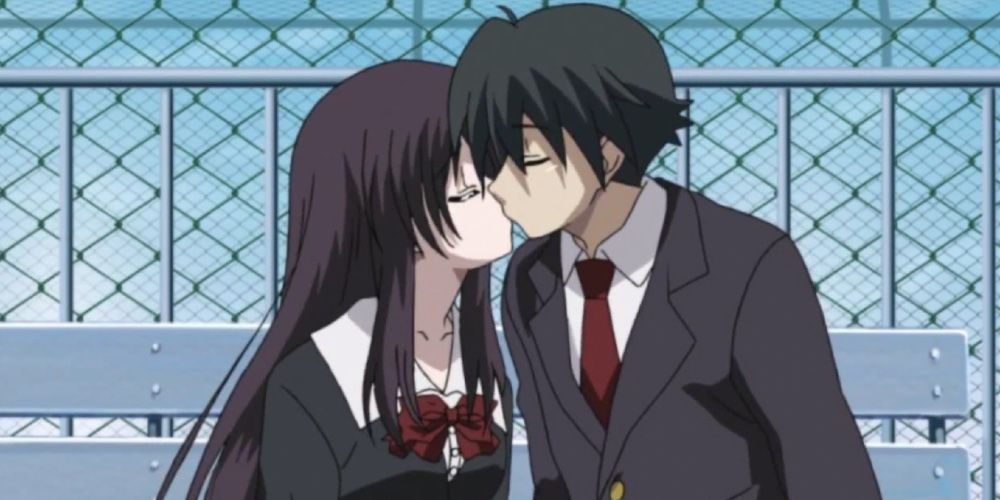
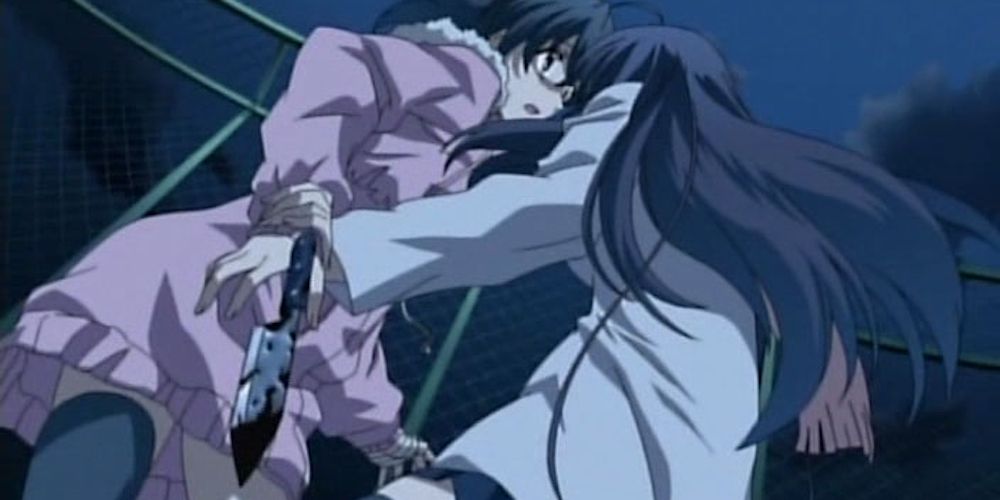
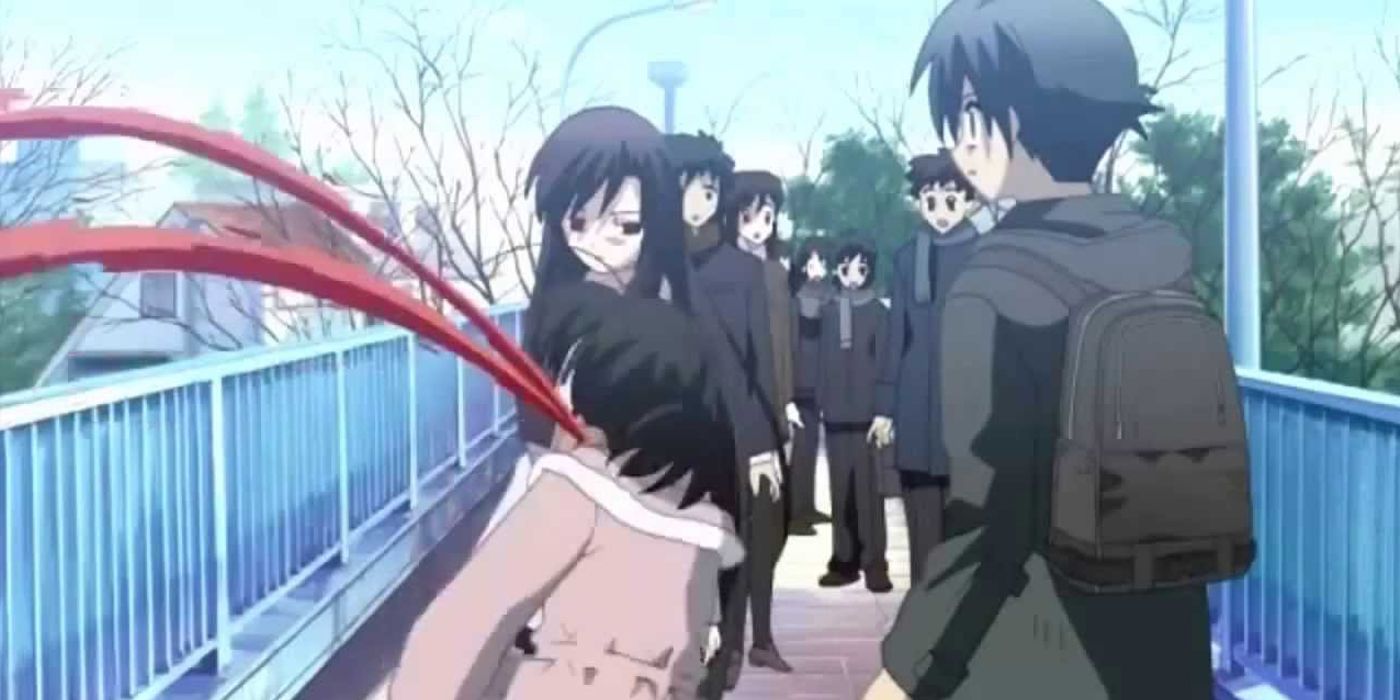
School Days is known for being a very divisive anime – people either love it or hate it. These days, viewers don’t typically expect a heartwarming romance from the series. While the story follows a fairly predictable path, School Days became famous for its shocking ending: the main character, Makoto, is violently killed by one of his girlfriends, who is then killed by the other woman involved in their complicated relationship.
The anime School Days became well-known – and often infamous – primarily because of its shockingly bad ending. However, some fans believe the bizarre finale intentionally challenges typical harem anime conventions. They even find the violent conclusion satisfying, arguing that after watching the series, most viewers would agree that Makoto ultimately got what he deserved.
Midori Is the Most Controversial Anime in History
Defining what’s acceptable in horror is always debatable. The anime Midori, also known as Shoujo Tsubaki, is considered by many to be a deeply personal and important work, and a unique entry in the history of horror anime. However, it’s also been banned in several countries and heavily criticized for its disturbing content.
The 1992 anime film Midori tells the tragic story of a young girl who loses her parents and is then exploited and abused by a cruel circus troupe. The film is known for its graphic depictions of sexual violence and disturbing content, typical of the ‘ero guro’ genre, which explains the strong public reaction and controversy surrounding it.
Read More
- Mobile Legends: Bang Bang (MLBB) Sora Guide: Best Build, Emblem and Gameplay Tips
- Clash Royale Best Boss Bandit Champion decks
- Best Hero Card Decks in Clash Royale
- All Brawl Stars Brawliday Rewards For 2025
- Best Arena 9 Decks in Clast Royale
- Vampire’s Fall 2 redeem codes and how to use them (June 2025)
- Brawl Stars December 2025 Brawl Talk: Two New Brawlers, Buffie, Vault, New Skins, Game Modes, and more
- Clash Royale Witch Evolution best decks guide
- Clash Royale Furnace Evolution best decks guide
- Mobile Legends: Bang Bang (MLBB) Marcel: Hero overview, skill analysis, and release date
2025-10-22 19:44